Thousands of French farmers ‘lay siege’ to Paris as they block key motorways in pay dispute
Thousands of French farmers ‘plan to encircle capital’ amid warning protests could last for a month
Your support helps us to tell the story
From reproductive rights to climate change to Big Tech, The Independent is on the ground when the story is developing. Whether it's investigating the financials of Elon Musk's pro-Trump PAC or producing our latest documentary, 'The A Word', which shines a light on the American women fighting for reproductive rights, we know how important it is to parse out the facts from the messaging.
At such a critical moment in US history, we need reporters on the ground. Your donation allows us to keep sending journalists to speak to both sides of the story.
The Independent is trusted by Americans across the entire political spectrum. And unlike many other quality news outlets, we choose not to lock Americans out of our reporting and analysis with paywalls. We believe quality journalism should be available to everyone, paid for by those who can afford it.
Your support makes all the difference.French President Emmanual Macron has urged the European Union to make concessions to furious farmers as they vowed to encircle the capital and “starve Parisians” by cutting off food supplies.
Eight key roads in and out of Paris are currently blocked by more than a thousand tractors, while hay bales along the roads have been set on fire and scarecrows have been hung from bridges. Dozens more blockades were also launched around France and Belgium.
“Parisians are going to be hungry. The goal is to starve Parisians. That’s it,” said Benoît Durand, a grain farmer.
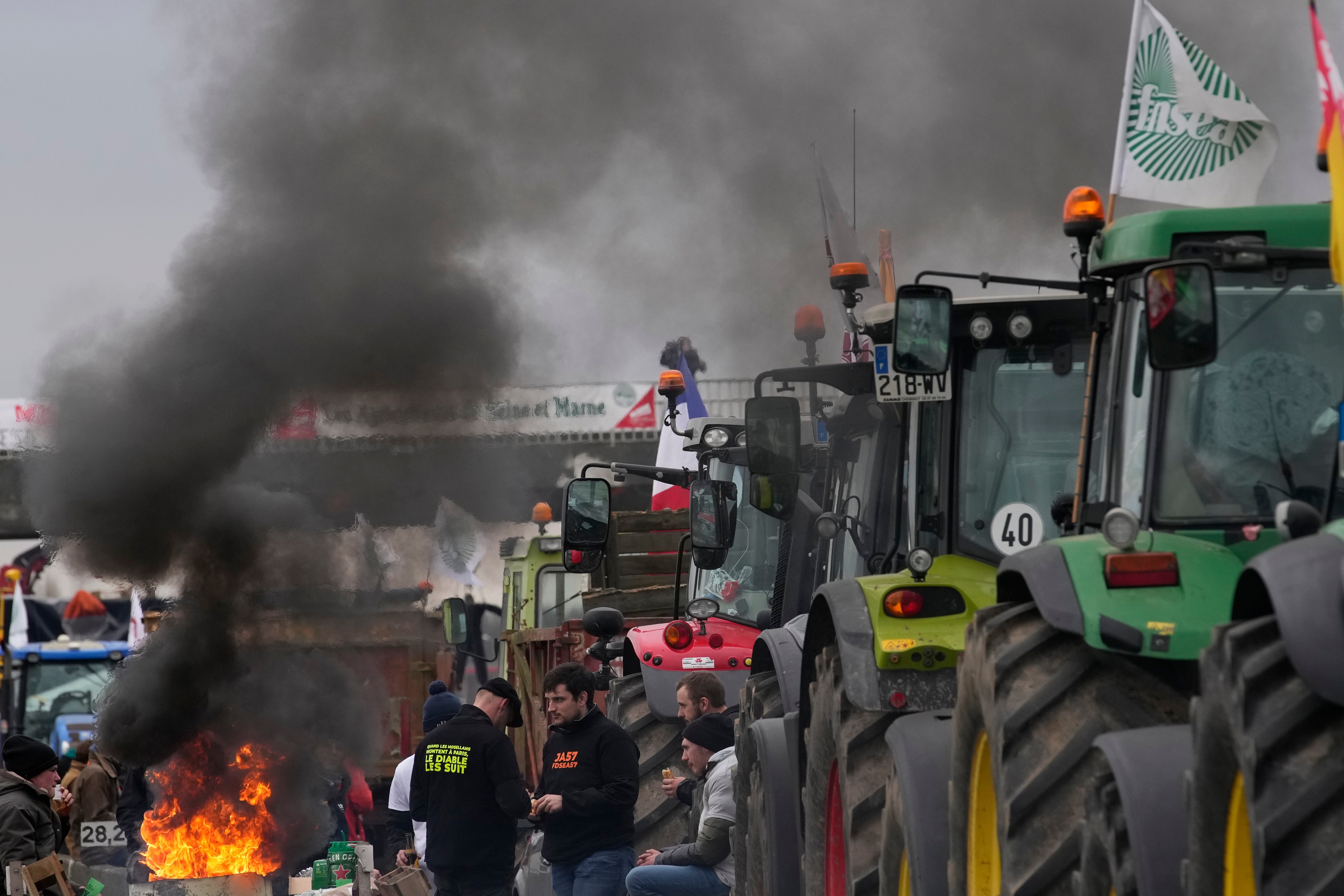
Thousands of farmers are protesting against declining income, red tape and environmental policies that are pushing costs up in France and Europe more widely. The issue of subsidised Ukrainian grain exports to the European Union, which farmers say are undercutting their products, is among the causes of the problem.
President Macron, who is on a two-day tour of Sweden, said that tariff-free Ukrainian imports were proving problematic.
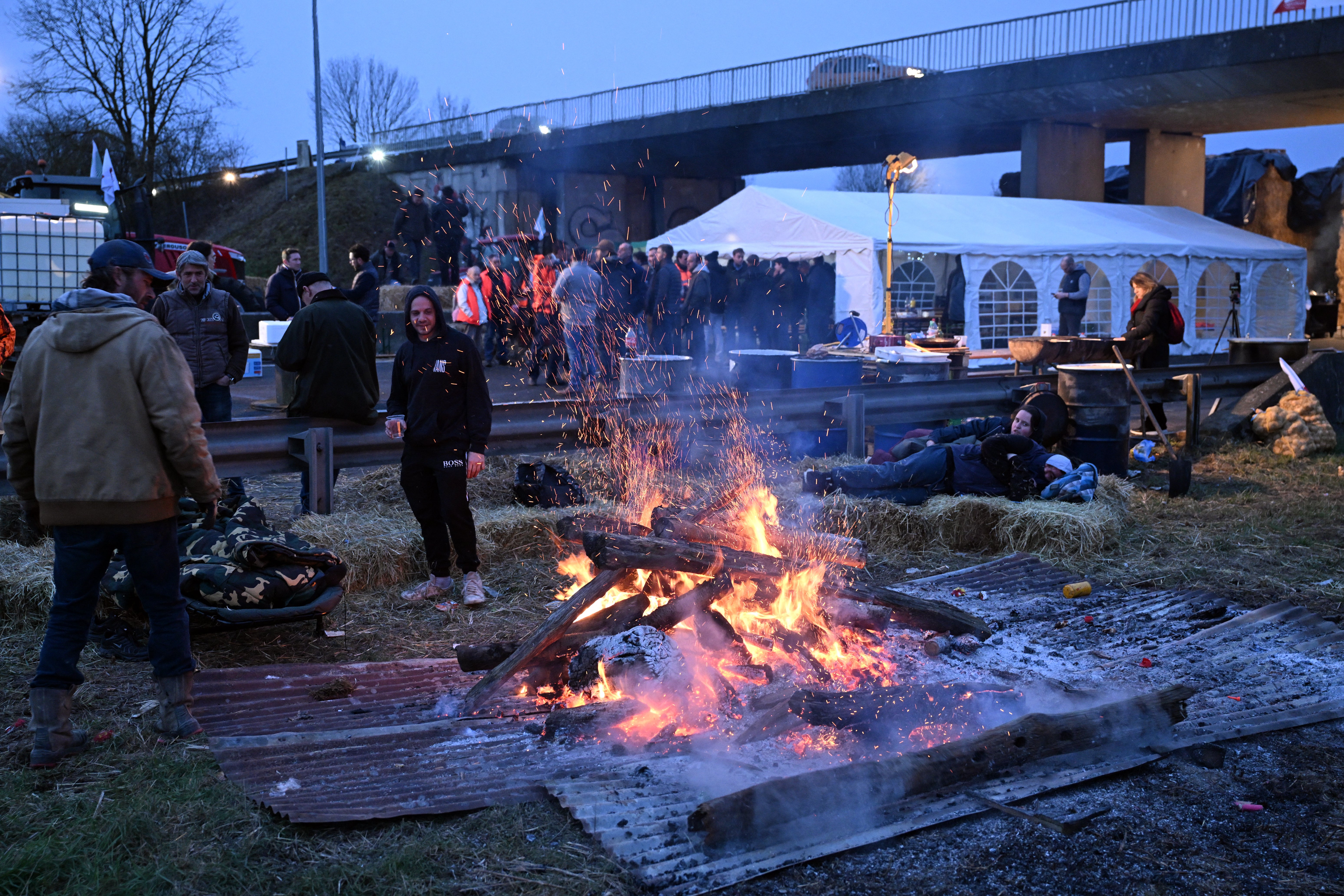
“We have asked to have clear measures on imports from Ukraine because today we have things in volume and quality that are destabilising the European market, whether it comes to chickens or cereals,” he said.
Gabriel Attal, the new prime minister, added that France needed an “agricultural exception” to European Union red tape.
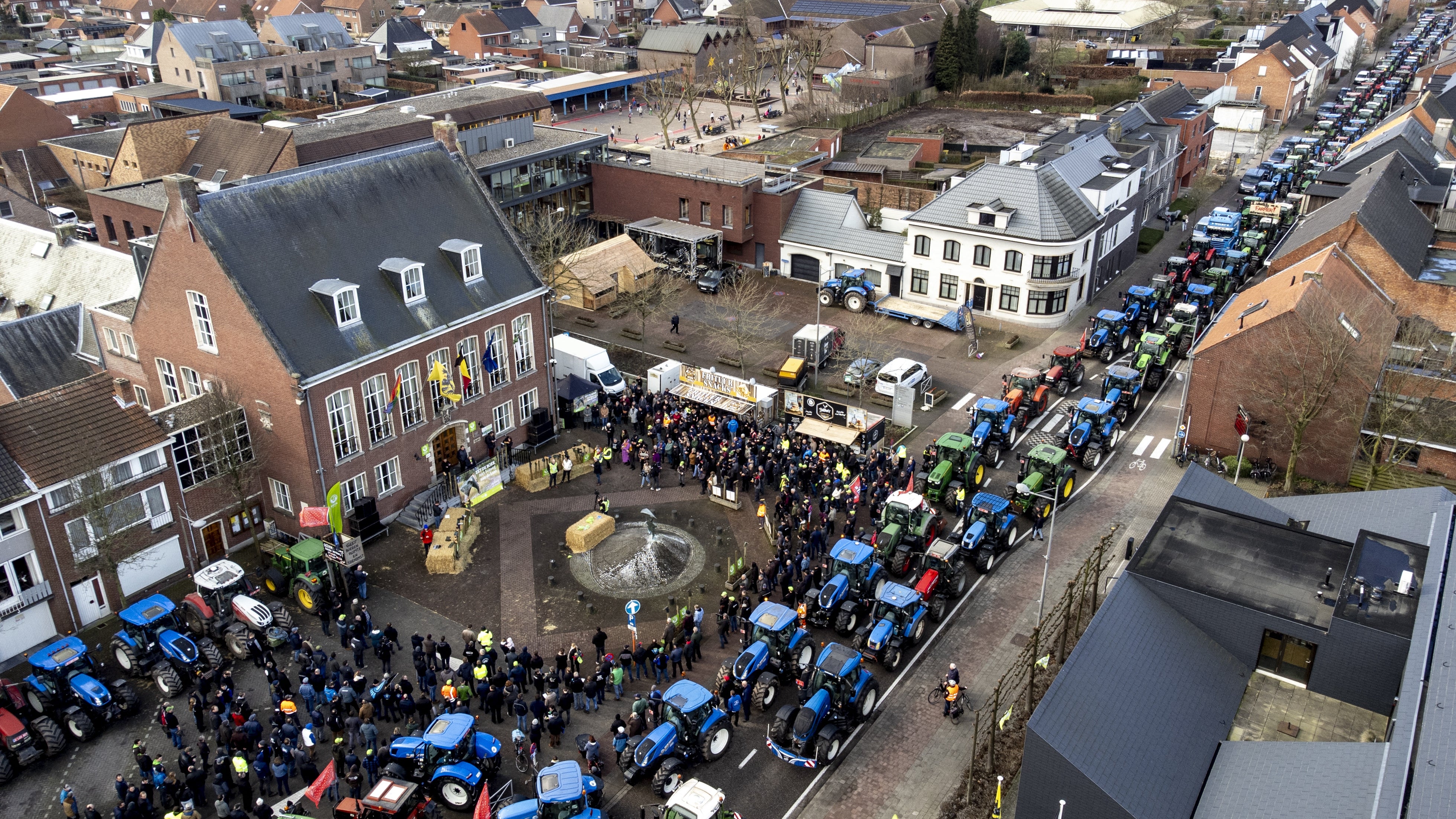
The farmers vow to maintain their blockade until their demands are met, but government agencies have warned that Paris will start to suffer in only a few days.
“Whatever happens, we are determined to go to the end,” farmer Jean-Baptiste Bongard said as crowds of protesters huddled together around small fires on a highway in Jossigny, near Paris, blocked by the tractors in the early hours.
“If the movement needs to last a month, then it will last a month.”
His comments came as Ademe, a government agency, said Paris would only have three days’ food supplies in the event of major disruption, as deliveries are made every day.
In Longvilliers, southwest of Paris, both carriageways of the highway were blocked with tractors and bales of hay, with other traffic being diverted up a slip road as a queue of cars snaked into the distance.
On the other side of the capital, protesters were seen setting up barbecues and sleeping bags, further signs that they were there to stay.
The protests have been going on for more than a week, but increased in intensity on Monday in the run-up to an EU summit on Thursday, when they hope their action and those of other farmers in Europe will grab the attention of the politicians focused on aid for Ukraine and the bloc’s budget.
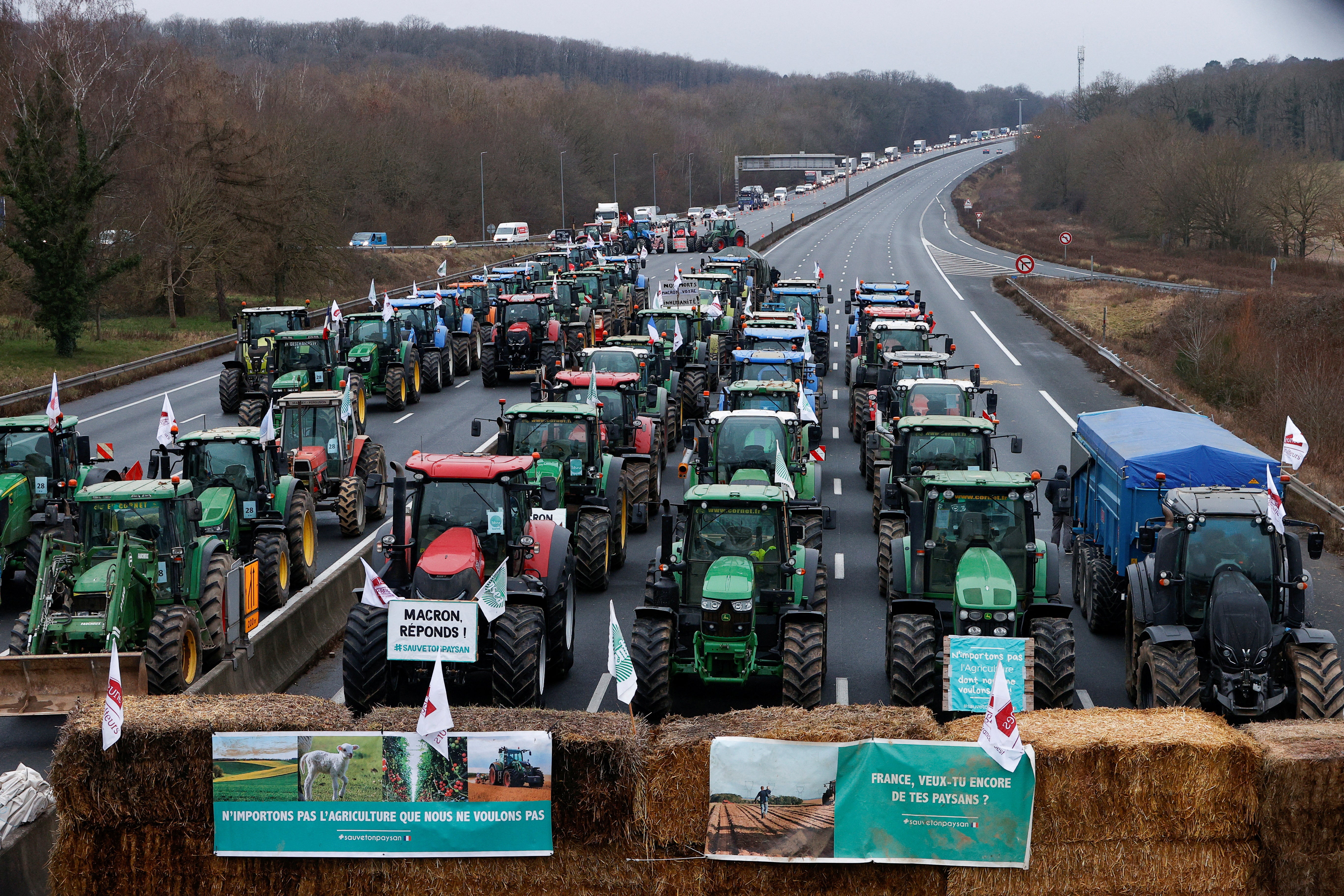
Elsewhere, farmers set bales of hay on fire to partly block access to Toulouse airport in southwestern France.
Farmers, who also want measures against cheap imports, are looking for more support from Mr Attal, who will spell out his policy plans later on Tuesday, and from the agriculture minister, who is also due to make an announcement.
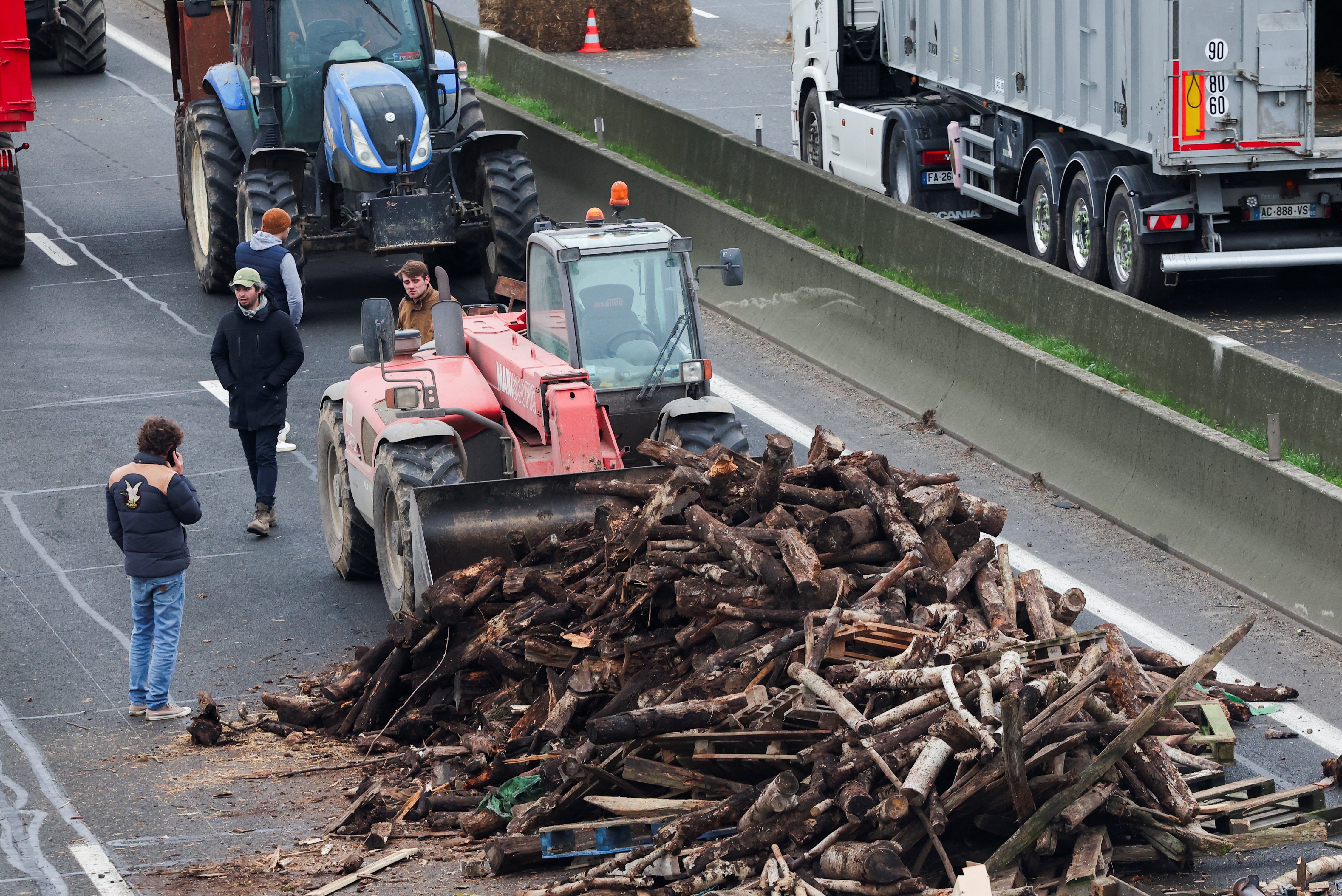
Meanwhile, Belgian farmers - also angry about rising costs, EU environmental policies and cheap food imports - plan to block access roads to the Zeebrugge container port from Tuesday, the port said, confirming a report in financial daily De Tijd.
The protesters plan to bar access to the North Sea port, the country's second-largest, for at least 36 hours from 2pm local time (1pm GMT), the paper reported, citing organisers and police.
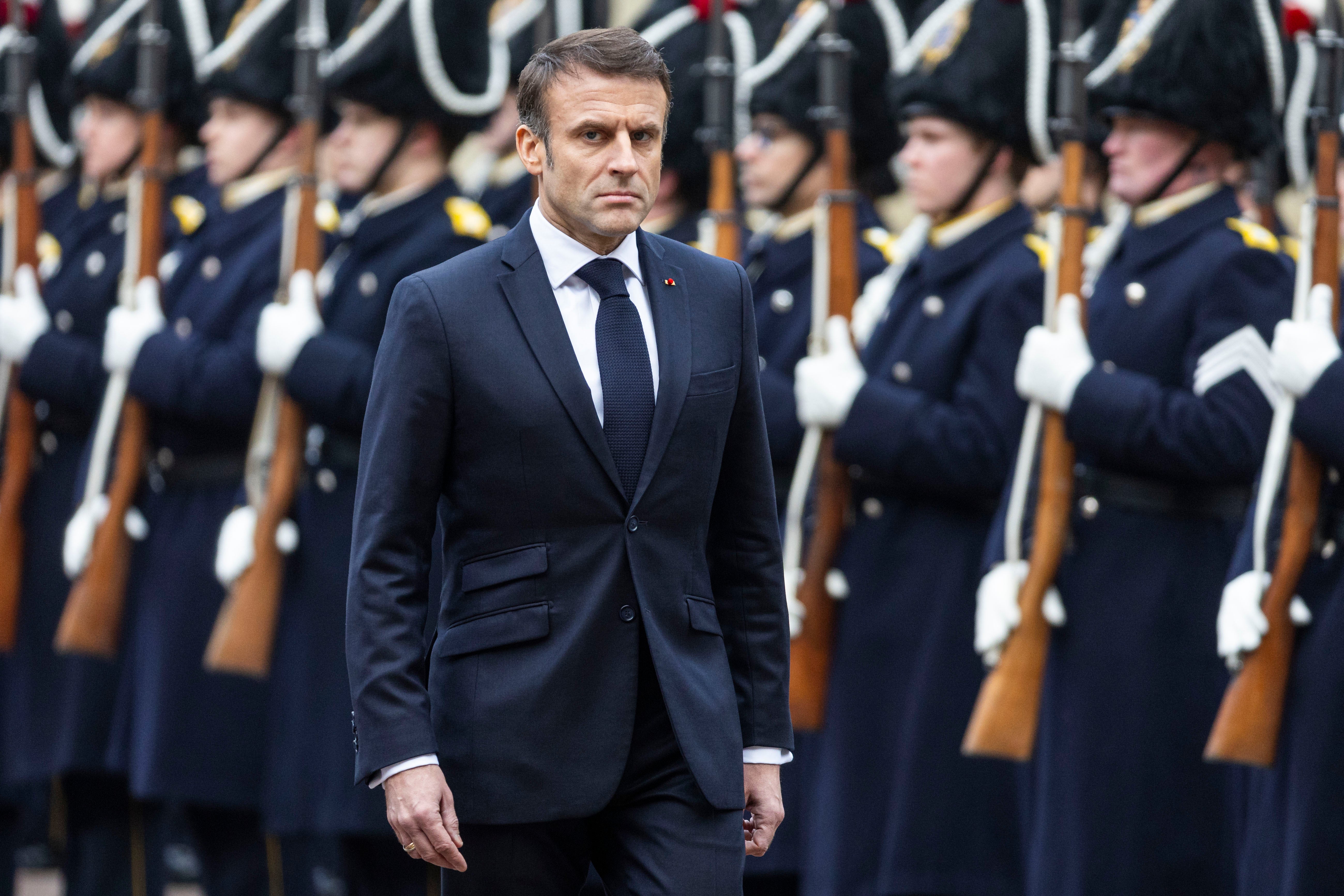
“Police services have received information about an action at the Zeebrugge port,” a port authority spokesman said. He added that it was not clear what the action would entail.
Belgian farmers also disrupted traffic during the morning rush hour on Tuesday. One of the blockades was close to the Dutch border on the E19 highway, local media said.
Belgian prime minister Alexander De Croo is set to meet with farmers' associations on Tuesday.

Join our commenting forum
Join thought-provoking conversations, follow other Independent readers and see their replies
Comments